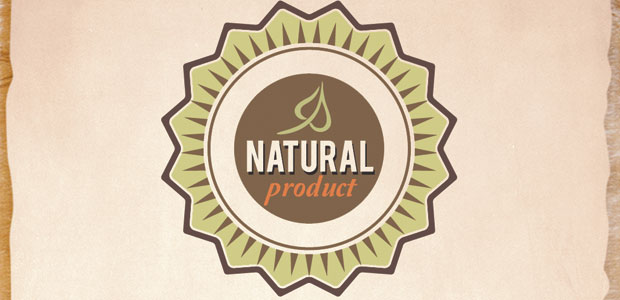Advertisement
The Meaning of “Natural”
Navigate the food aisles for healthier choices

Ask a dozen people to define “natural” and you’ll end up with a dozen answers. “Natural” evokes warm fuzzies just like thoughts of Granny’s apple pie and soft cotton sheets—which is what makes it such an effective marketing lure on food products.
Splitting hairs—naturally
The reality is, unlike “organic,” the word “natural” is not regulated, leaving it largely to consumers to read between the lines in choosing quality foods. Take the category of processed meats. Nitrites are a food preservative found in processed meats, believed to be linked to increased cancer risk. Wanting to avoid nitrites, more and more consumers source out seemingly healthier brands of hot dogs, deli meats, bacon, and ham.
Last year, however, CBC Marketplace illuminated a federal loophole that can be confusing to meat buyers. The show looked at just one leading Canadian brand whose natural-esque labels indicated “no added preservatives,” but did reference cultured celery extract on the package.
Using lab testing, the CBC investigation found that the natural-sounding ingredient was, in essence, a nitrite. Cultured celery extract, it turns out, is a natural source of nitrites, and current guidelines—not regulations—allow products to nevertheless be labelled as “natural” with “no added preservatives” if all ingredients are from a natural source, even the preservatives.
The findings have since led the Canadian Food Inspection Agency to announce it is revisiting its labelling guidelines for “natural” deli meats.
Consumer consciousness
Some experts, such as naturopathic doctor Alison Vandekerkhove of A New Leaf Naturopathic Clinic, say the onus is on people to educate themselves, whatever the marketing hype. “Mercury and aluminum occur naturally in nature,” she points out. “Does that make them natural, or healthy?”
In her practice, Vandekerkhove counsels patients on choosing healthier foods. And when she shops, she makes a conscious choice to avoid what she considers to be one of the worst food additives: fructose. “Many people think fructose in processed foods is okay because fructose also naturally occurs in fruit,” she says.
The difference is, in fruit, fructose is just one element among many, and it occurs in small amounts. Concentrated fructose in processed foods, on the other hand, increases levels of circulating blood lipids (fats), obesity risk, uric acid levels (associated with gout and heart diseases), and fatty liver.
“If people only did one thing—avoid buying processed foods with fructose—they would be much better off,” Vandekerkhove says.
From the sea came carrageenan
Carrageenan is another “natural” additive in question. Used by the food industry for decades, this seaweed-derived additive is often used in low-fat milk products and milk alternatives as an emulsifier.
According to the Cornucopia Institute’s March 2013 report, Carrageenan: How a Natural Food Additive Is Making Us Sick, carrageenan is classified as either “degraded” or “ungraded” carrageenan. The former is a recognized carcinogen in animal experiments and a possible human carcinogen.
While food processors claim that carrageenan used in food is the ungraded variety, studies show that food-grade carrageenan is also linked to inflammation and colon cancer in animals. When the food industry conducted its own tests, every sample of food-grade carrageenan also contained at least some of the degraded variety—up to 25 percent at its highest contamination. Use the shopping guide to carrageenan-free foods at cornucopia.org under the Scorecards tab.
Reach for organic
In the meantime, Vandekerkhove points out that, although the occasional ingredient in organic foods may be suspect, they’re generally a better choice because they’re less likely to contain pesticides and may be nutritionally superior. What’s more, use of the word “organic” is regulated in Canada, unlike “natural.”
As a guideline, she says, it’s crucial to read labels and reach for unprocessed foods as much as possible. Research particular companies, she suggests, and compose a list of favourites.
So the next time you hit the grocery store on the hunt for “natural” foods, spend a bit more time reading labels and take heart: every small choice to reduce additives makes a difference.
Reduced-chemical cuisine
The Center for Science in the Public Interest (CSPI), a US public watchdog group, lists the following among its top food additives to avoid.
Artificial colourings: found in candy, soda pop, gelatin desserts, and other sugary foods. The CSPI reports that synthetic dye risks include hyperactivity in children, cancer (in animal studies), and allergic reactions. Report your reaction to food colourings at cspinet.org.
Artificial sweeteners: found in drinks, candy, gum, and many other products to provide low-calorie sweetness. Some have been linked to cancer and affect the nervous system. Research remains limited, so why take a chance?
Brominated vegetable oil (BVO): used in soft drinks to maintain uniform viscosity and a cloudy appearance. It’s been found that BVO residues accumulate in the body’s fat stores, and animal studies have revealed that BVO can be transferred from mother to child while nursing. Possible risks include heart lesions, fatty liver, and impaired growth and development.
Caramel colouring: found in soft drinks, pre-cooked meats, soy and Worcestershire sauces, chocolate-flavoured products, and beer. Although caramel colouring is deemed safe by Health Canada, evidence suggests that components of this additive cause cancer in animal studies and are considered possible human carcinogens by the World Health Organization.
Monosodium glutamate (MSG): a flavour enhancer in soups, salad dressings, chips, frozen entrees, and restaurant foods. Reported reactions include headache, nausea, weakness, burning sensations in the neck and forearms, wheezing, increased heart rate, and breathing difficulties. May also be listed as autolyzed yeast extract, hydrolyzed soy protein, hydrolyzed vegetable protein, sodium glutamate, or monohydrate.
Sodium nitrite: used in processed meats as a colour and taste stabilizer; believed to be linked to increased risk of cancer, especially in children and pregnant women.
The value of organics
- For the healthy shopper, organic is a bigger choice than ever. The value of organic product sales in Canada hit $3.7 billion in 2012—up from an estimated $2.6 billion in 2010.
- A market research report released in April 2013 by the Canadian Organic Trade Association indicates that the organic market has tripled since 2006.
- Over half of Canadians feel organic is better for the environment than conventional growing and almost half believe organic is more nutritious.
- The report dispels the myth that organics are far more expensive by noting that the average Canadian organic shopper spends $132.70 weekly—only $17.48 more than the regular shopper at $115.22.
Labels with cred
The following labels are backed by strict regulations. Keep an eye out for them when purchasing food and other grocery items.
Fair Trade
These products are made under fair working conditions that include fair prices for workers and producers. Look for items—particularly cocoa, coffee, fruit, grains, sugar, teas, nuts, oils, and flowers—featuring the Fair Trade Certification Mark, which ensures they meet the ethical and environmental standards set by Fairtrade Canada.
Organic
Items boasting this claim must have a minimum organic content of 95 percent. Look for the certifying organization on the product label as well as the Biologique Canada Organic logo.
Non-GMO Project Verified
This checkmark symbol on products indicates that the item has been produced using best practices for GMO avoidance.





